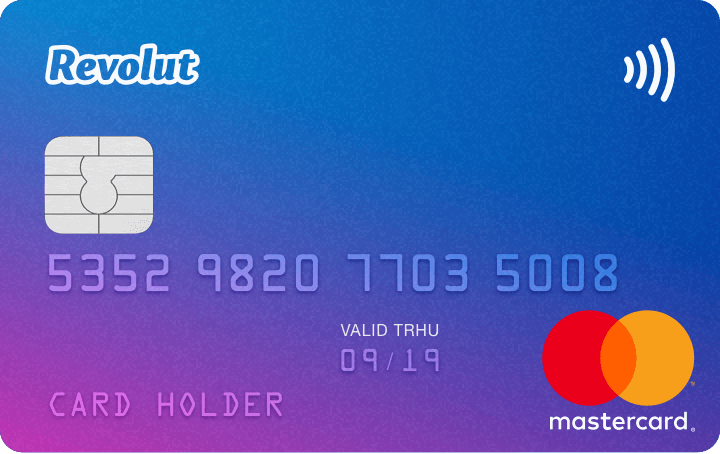In Gibraltar we no longer pay for things, we Revolut them. We don’t exchange money, we Revolut it. And it seems we’re not alone in this; in the four years since it launched, Revolut has attracted seven million customers in Europe, making it one of the financial sector’s biggest success stories. Valued at $1.7bn, the UK-based startup is part of a new wave of fintech companies aiming to revolutionise the financial industry. While the future looks bright for Revolut, the path to success hasn’t always been easy, the company has faced some criticism over its interstellar pace of growth and received negative press coverage about its work ethic.
Fintech.gi spoke to Revolut Co-Founder and CEO Nikolay Storonsky and asked him about the challenges of scaling up, how he’s preparing the firm for Brexit and what he’s planning next.
Can you tell me how the company started up – where did the idea come from?
Nikolay Storonsky: “Following the collapse of Lehman Brothers in 2008, I ended up taking an offer from Credit Suisse, where I met Vlad Yatsenko, Revolut’s co-founder and CTO. We were both frustrated with the fees charged to send money abroad, and realised that there wasn’t a card option that could be set up easily, used across Europe without being stung by huge, often hidden, fees. In addition, many people didn’t trust the traditional banks following the 2008 financial crisis, so we wanted to try and rebuild that trust.”
 How did you manage in those early weeks and months?
How did you manage in those early weeks and months?
“A lot of hard work! We launched Revolut in July 2015 as a way to rebuild the financial industry from the ground up, with a focus on technology. It took a long time to get to where we are now, 4 years down the line. We are now one of Europe’s fastest growing fintech unicorns, with over 7 million customers signed up across Europe, and 220,000 on waiting lists in USA, Canada, Australia, New Zealand, Singapore and Japan.”
What you’ve achieved to date has been nothing short of a revolution, did you set about to do this?
“Like so many business concepts, Revolut was born from a personal pain point – the inability to easily minimise the cost of spending money overseas. It’s an issue that affects people and businesses across the world. As we’ve built out the product and added more services, we’ve always aimed to put the customer at the heart of what we do, solving pain points and barriers to access that are prevalent across the financial services industry. This is why I believe we’ve been popular. We are disrupting and democratising access to financial products by increasing transparency and education through a simple, low-cost subscription model.”
Much has been written about the pace of growth, what are some of the challenges faced as a result of your success?
“There have been some challenges along the way as our team has rapidly expanded to include nearly 1,500 colleagues. The culture we have here is evolving and changing as we grow and it is something we actively work on every day.”
How are you addressing some of these growing pains?
“Over the last 18 months, we’ve spent a lot of time working on our culture and we’ve come a long way. In fact, we were named as a top tech company to work for by LinkedIn and Hired. Going forward, we will be making a continued effort to promote the Revolut culture and values of today, and transparently sharing our plans around future projects in this area.”

You are on a recruitment drive. Are skills within new technologies such as blockchain in-demand?
“We’re hiring in multiple global markets for a huge number and variety of roles. Everything from customer service to compliance, and operations to marketing. We’re not hiring blockchain roles currently, but it’s something we may consider in the future.”
Gibraltar is one of the countries with the highest percentage of Revolut customers per country – what kinds of products can loyal customers expect in the coming months?
“Revolut Youth will be the next big product that we launch. Our mission is quite simple: we want to help kids get better at managing their money and our belief is that it’s something you learn little by little, through experience and with help from your parents. We’re designing Revolut Youth just for that. Enabling parents to support their kids as they gain control over their finances, while keeping a watchful eye over it. Kids will learn the importance of spending wisely, spending with their card and using the app to put money aside.
We’re working on launching the product by the end of the year with Revolut customers able to add their children to their account as secondary users, each with their own card. This will be followed in early 2020 by a dedicated app for kids. Our long term plans are for the Revolut Youth app to meet the United Nations’s development standards for financial literacy.”
 The sign-up rate and popularity of your product seems to show a thirst for this type of financial service, what are your predictions for the Fintech space?
The sign-up rate and popularity of your product seems to show a thirst for this type of financial service, what are your predictions for the Fintech space?
“It’s an interesting time for the industry. Many of the largest institutions have too much internal complexity to compete with fast and nimble start-ups. To adapt, we have noticed that they are beginning to embrace, acquire and evolve. We’ve started seeing a “land grab” for the most promising technology platforms and start-ups, with an increasing number of key partnerships, mergers, and acquisitions between challengers and incumbents.
As long as there is innovation, there is room for more players in the space. If mobile banking services continue to create new products or utilise new technology, we’ll be able to offer a more competitive marketplace and provide better customer experiences for mobile banking users.”
How is the company preparing for Brexit?
“While there has been a great deal of uncertainty since the Brexit vote, we haven’t seen any large shifts in customer behaviour. That said, we want our customers to know that whatever the outcome, we’re taking proactive steps to protect their account and minimise disruption.
Last year, we set up a new European entity (called Revolut Payments UAB) in preparation for a no deal outcome back in March. Because this entity is based in Europe, it will have the ability to passport permissions around the EEA, whatever the outcome of Brexit. We will switch most of our EEA-based customers over to this new European entity in the event of a no deal. This means they will remain able to use all the great Revolut features they know and love.
We are also engaging with both the UK and European regulators, industry representatives and our fellow e-money and payment services providers to explore all alternatives, including potential periods of transitional relief for firms like us to continue to service our customers from our UK entity (in the event of any unforeseen delays or restrictions).”





